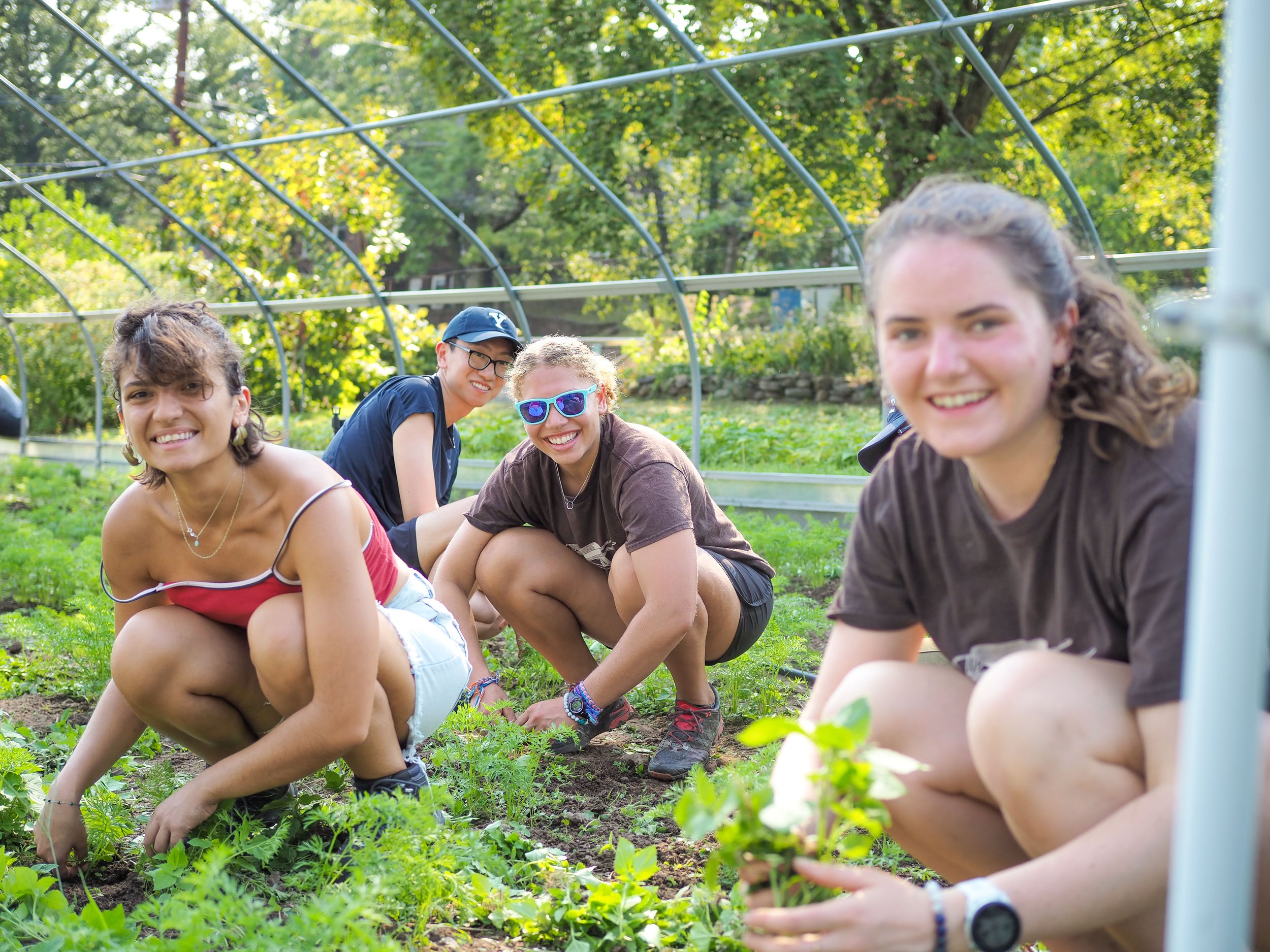
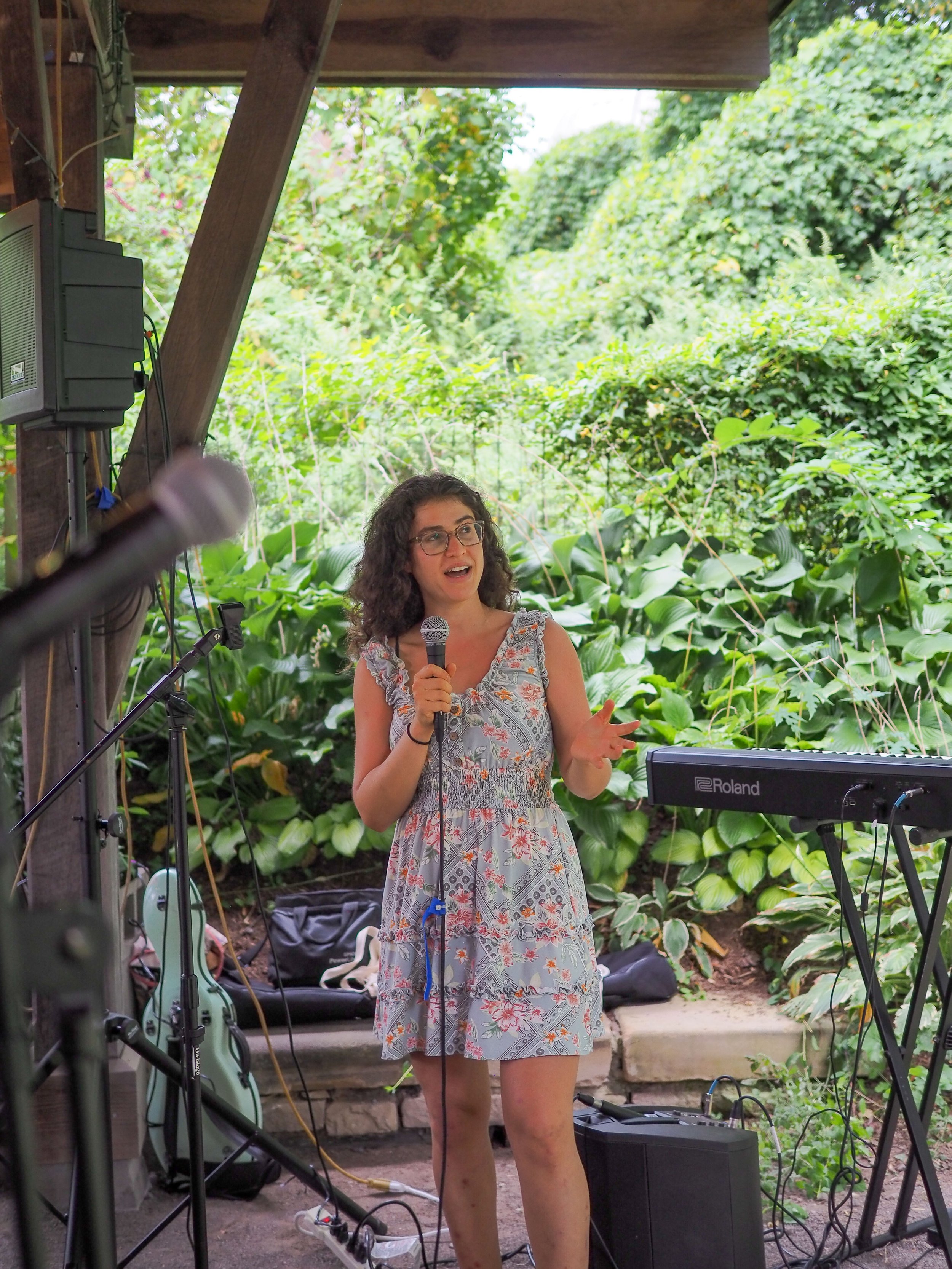
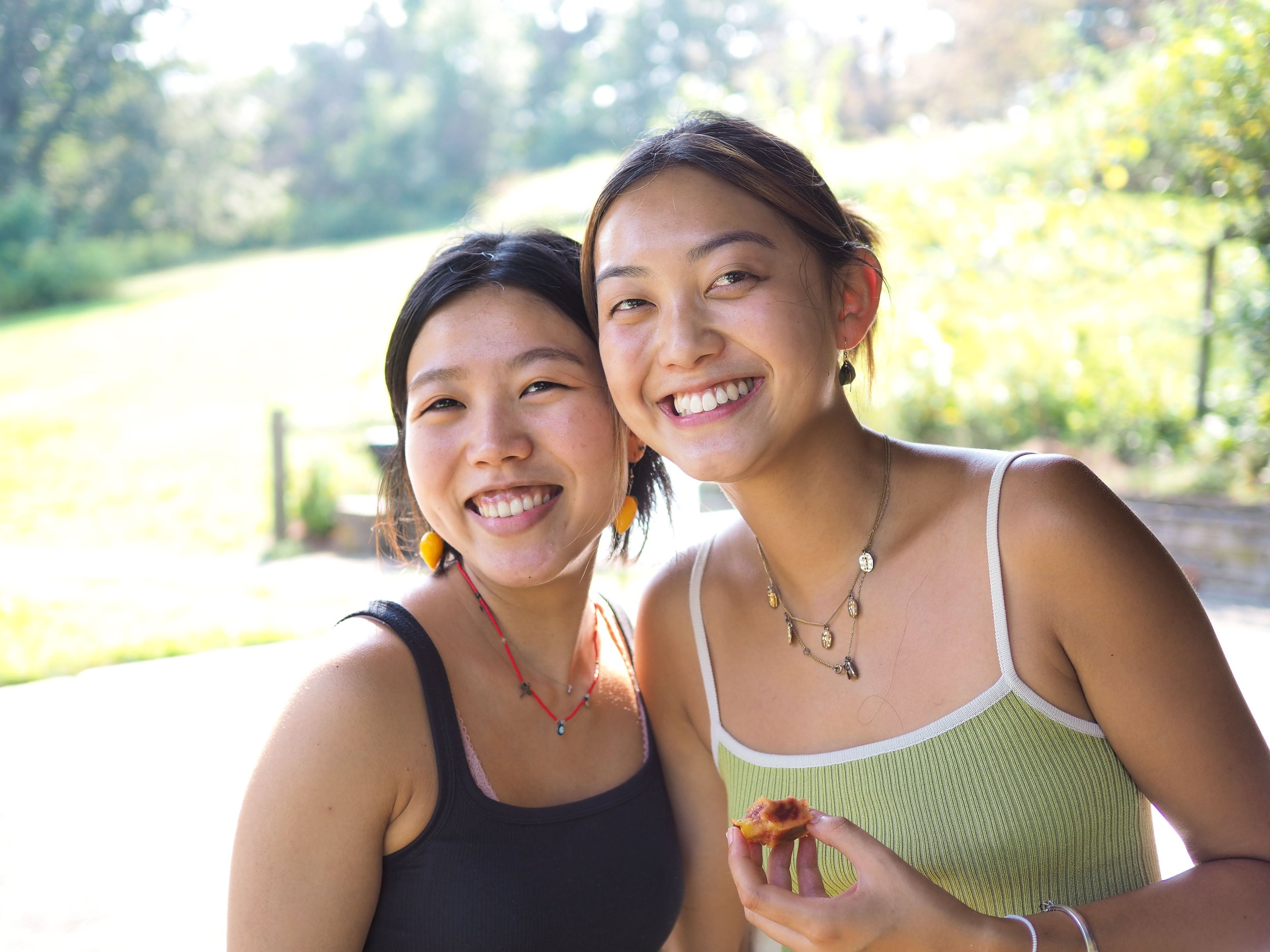
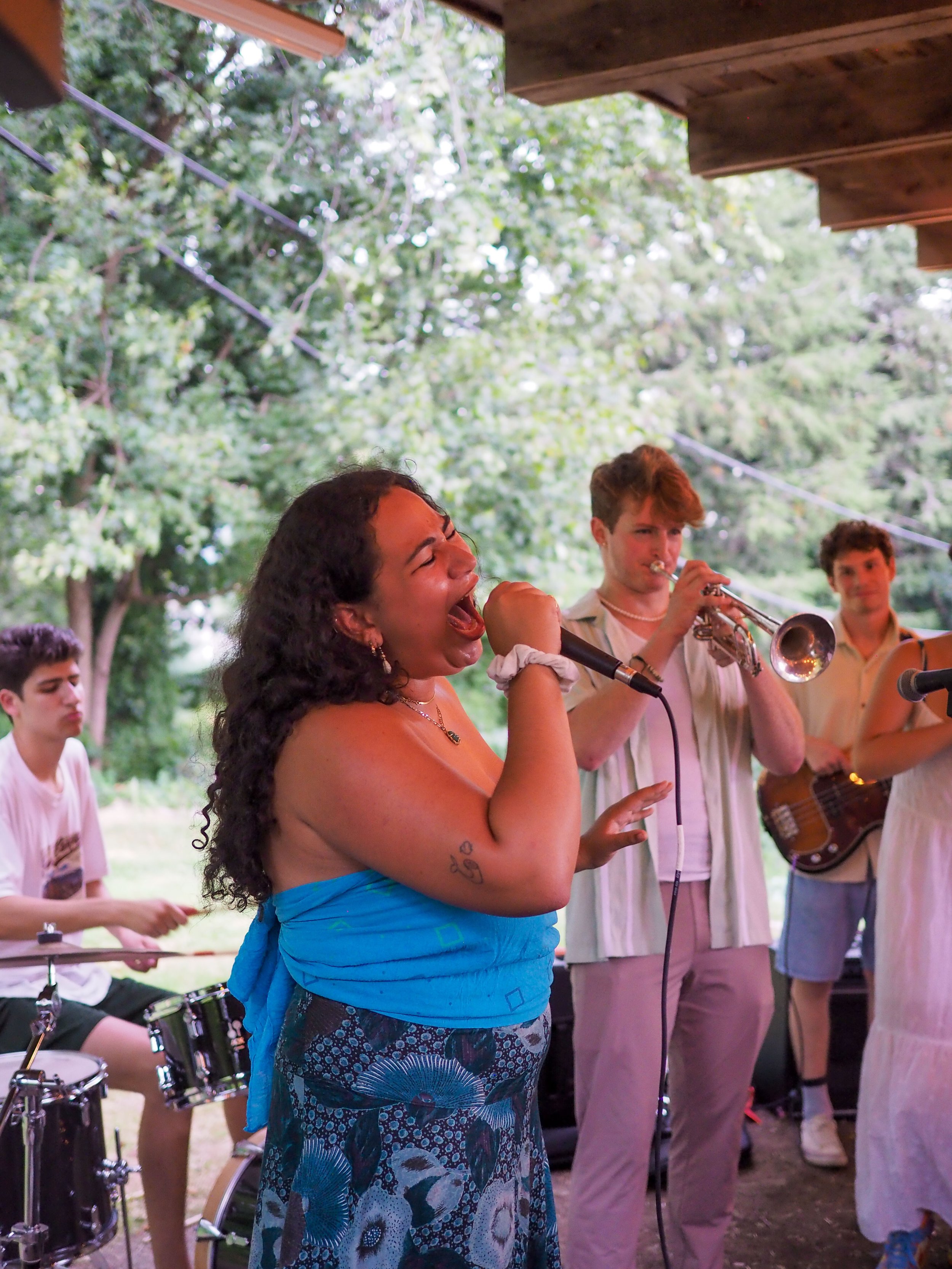
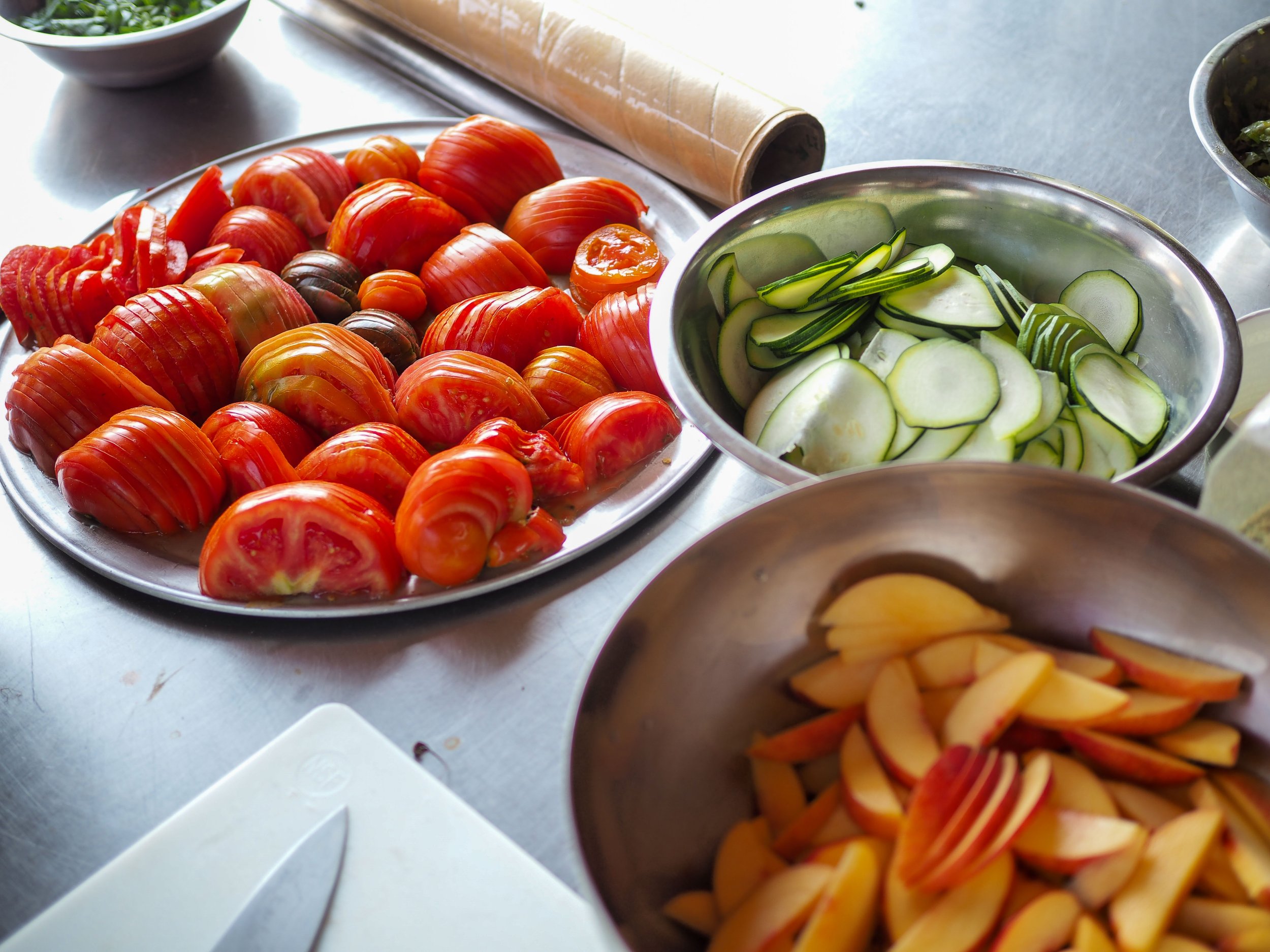
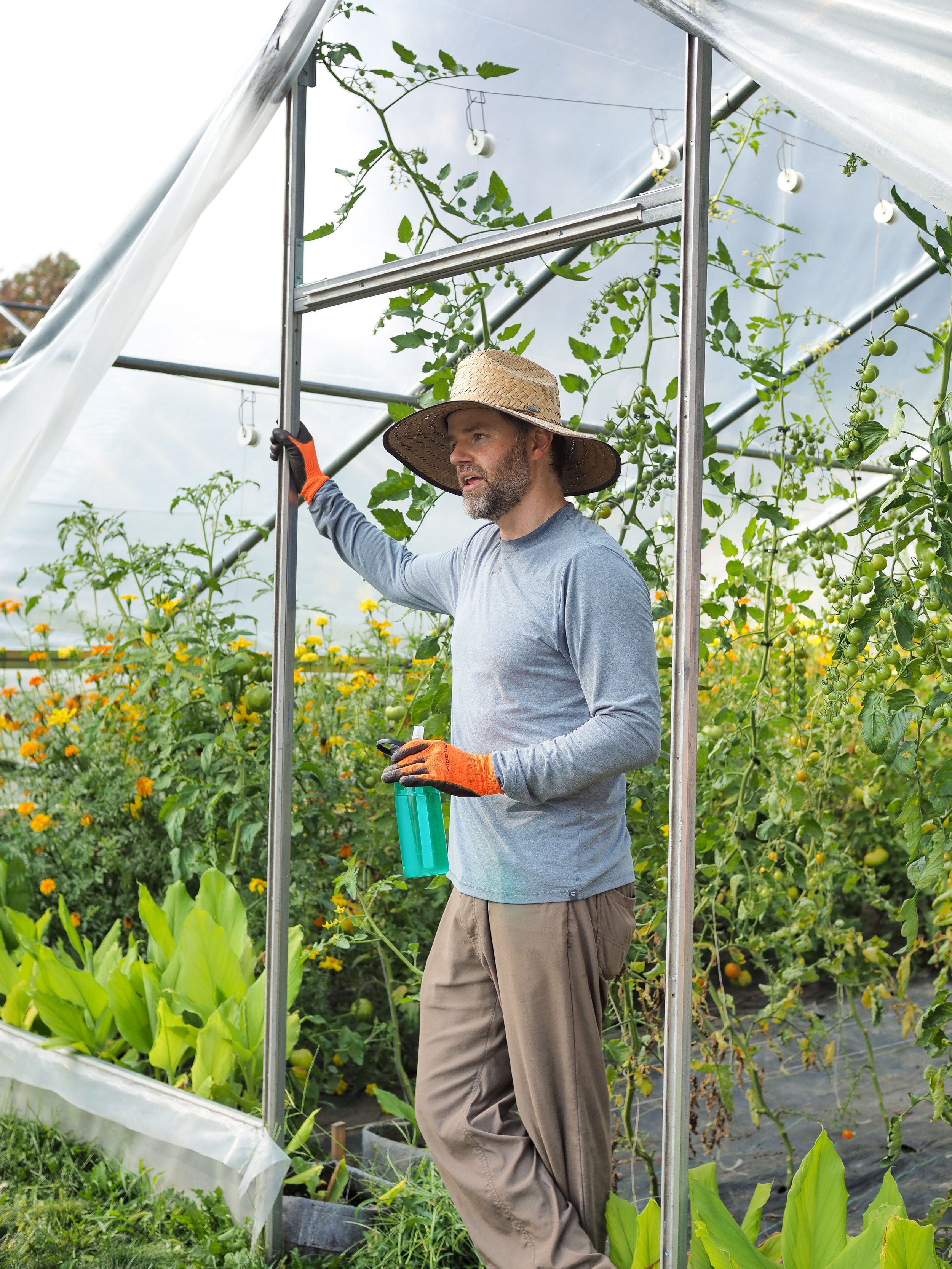
Despite a few encouraging signs of early autumn weather, the past week has been remarkably hot and humid. Still and all, dozens of students braved the sweltering weather to come to the first workday of the semester, where they helped manage the profusion of late summer produce. We weeded the carrot field, scuffled the arugula beds, and harvested hops for our forthcoming batch of "Yale Ale," with plenty of breaks for cold water straight from the pump.
Students then gathered under the Lazarus Pavilion for an engaging presentation by Food and Faith Fellow Miriam Levine '25, who spent her summer at Zumwalt Acres, a regenerative agriculture community in Sheldon, Illinois. Levine said her dream in life is to start a commune for pregnant people and new parents, so she was “really excited about learning how to build intentional community, especially with an emphasis on land stewardship.”
After generations of being farmed with standard industrial practices, Zumwalt now strives to model what organic regenerative agriculture can look like in the heart of soy and corn country. The farm practices crop rotation, composting, minimal and no-till agriculture, and mulching. They also employ agroforestry strategies, relying on a “shelter belt” of fruit and nut trees to not only produce food but also protect the crops from pesticide from neighboring farms.
They attempt to share this approach with the surrounding community through a variety of partnerships and special events. This summer, Zumwalt hosted a Perennial Soil Health event, which drew 50 farmers from the surrounding area to learn about regenerative practices. Levine acknowledged that she had “a lot of preconceived notions” about a region known for its industrial agriculture, but “being able to talk with these farmers, and hear how they’re noticing how their plants and their soil and the ecology have changed over time, and their fear about climate change and how dedicated they are to working on this topic, was incredibly meaningful.”
Zumwalt is both a farm and a research and learning center. Levine specialized in mushroom cultivation, researching the power of fungi to decompose plastic, build homes on a substrate of human waste, and break down radioactive waste and petroleum. In partnership with the Planavsky Lab over in Yale’s Department of Earth & Planetary Sciences, Zumwalt Acres is also researching basalt, a volcanic rock that can sequester carbon and release nutrients into the soil when used as a natural fertilizer.
The community is led by Jewish values. In addition to weekly Shabbat dinners and regular Jewish learning, the farm observes traditions like shmita, treating every seventh year as a year of rest for the soil and a time to give back to the surrounding community. They also follow pe’ah, the obligation to leave the corners of each field for those who cannot grow their own food — or, in Zumwalt’s case, donating that produce to a local food pantry.
We thank Levine for her insightful talk, and we thank everyone who attended the knead2know and volunteered at our workday. This Friday, our knead2know will be led by Calista Washburn ’24, a Lazarus Summer Intern who spent the summer on the Old Acre learning about soil and clay harvests and its relationship historically to irrigation practices.
Miriam was the recipient of the Food & Faith Fellowship Award, sponsored by the Joseph Slifka Center for Jewish Life at Yale with support from the Yale Sustainable Food Program. Learn more by searching “Zumwalt” in the Student Grants Database.
